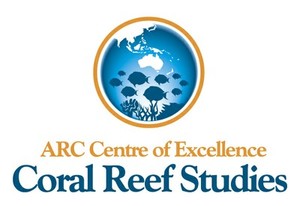Coral Triangle Initiative - Safeguarding food security
by ARC Centre of Excellence for Coral Reef Studies on 11 Jul 2012

SW
Coral Triangle Initiative - Safeguarding food security in the Coral Triangle, the region embracing six nations and 350 million people to Australia’s north, is a key focus at an international meeting in Cairns today.
The meeting of the Coral Triangle Initiative (CTI) countries, hosted by the Asian Development Bank and Australia, reports on the progress of an international effort to protect the world epicenter of marine biodiversity and the food that it supplies to the region.
The six nations of the Coral Triangle – Indonesia, the Philippines, the Solomon Islands, Timor Leste, Papua New Guinea and Malaysia – meet amid warnings that seafood supplies for the region’s growing population could become critical if the balance between commercial fishing, conservation and the needs of local fishers is not managed carefully.
Founded by the six countries in 2009, the Coral Triangle Initiative covers 5.7m square kilometres of oceans and coast in southeastern Asia. The region is facing mounting pressure as demand for fish soars and commercial pressures rise, while coral reefs decline and local communities struggle to earn their livelihoods from the sea.
The CTI’s ambitious plan for the future includes:
• Developing an ecosystem approach to fisheries management
• Building a network of Marine Protected Areas across the region
• Developing measures to help local people adapt to climate change
• Protecting threatened marine species.
Professor Bob Pressey of the ARC Centre of Excellence for Coral Reef Studies (CoECRS) at James Cook University says that marine conservation approaches adopted in developed countries like Australia and the United States will need re-thinking if they are to work in the Coral Triangle, where so many livelihoods depend on the sea.
'Sure, you can show there are benefits to the fish catch if you put in some no-take areas – but the CTI plan also has a focus on issues like resilience to climate change and biodiversity conservation. These additional goals will almost certainly need more areas to be set aside from fishing than needed only to sustain livelihoods. So achieving these higher-level goals will need to be handled with great care to avoid adding to the pressures on the affected people.'
'Incentives and alternative employment need to be created if fishers are to be encouraged to reduce their catches', he says. Also government and large-scale conservation plans need somehow to come to terms with the complexity of local fishing rights and ownership of the sea. 'We still have a lot to learn about how to do this,' he adds.
Research by Dr Simon Foale of COECRS and James Cook University, and colleagues, suggests the food security of the region could be at risk due to soaring demand (both local and international), a decline in stocks of wild fisheries, and degradation of coastal and marine ecosystems.
'Besides the local population of 350 million, major economies like Japan, China and South Korea now depend on imports of fish from the Coral Triangle countries,' he says.
'The Philippines is already experiencing huge external pressures from China and other neighbouring countries, and we are seeing the start of this in hitherto-untouched regions like parts of Papua New Guinea,' adds Prof. Pressey.
Dr Foale warns that one of the first consequences of this confluence of pressures is that the price of fish will become unaffordable for the majority of local people throughout the CTI region. 'Urbanisation is increasing, leading to growing demand for fish at a time when marine resources are already overstretched,' he says, adding that groups which are economically and politically marginalised will suffer most.
'One of the challenges with big-scale conservation planning is to take account of issues like poverty and its causes. We need to focus more on how you create – and pay for – alternative livelihoods for people who could lose out when fisheries are closed or scaled back.
Dr Foale concludes that the Coral Triangle Initiative will succeed if it includes:
• Stronger food security goals
• Balanced, flexible introduction of MPAs
• Alternative livelihoods and fish production methods
• Careful management of industrial fishing fleets
• A stronger focus on the drivers of poverty and underdevelopment in CT countries, especially capital flight.
He adds that the CTI is a bold and exciting initiative. Aquaculture of both fish and sea plants could offer a viable alternative source of incomes for many communities affected by closure of fishing
ARC Centre of Excellent for Coral Reef Studies website
If you want to link to this article then please use this URL: www.sail-world.com/99571